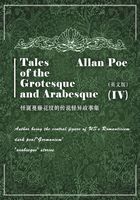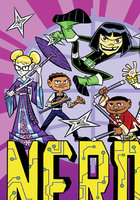Events had so stunned the city that it was hard to believe that this was still the same day. The very word "afternoon" seemed not to fit any more. Should it be called the second part of the day? The last part? Perhaps the most treacherous part, harbouring a centuries-old grudge against the day as a whole, or rather its first part, which you might call forenoon; forget the idea of morning. Its malice had rankled, to erupt suddenly that mid-September.
There was also a sense of gratitude to destiny for at least having preserved the city from other long-forgotten calamities such as the Double Night, a sort of calendrical monster that beggared the imagination, a stretch of time that was unlike anything else and came from no one knew where, from the bowels of the universe perhaps, a union of two nights in one, smothering the day between them as dishonoured women once were smothered in the old houses of Gjirokast?r.
Recourse to such flights of fancy was understandable because the inhabitants of the city had lost something that had always been a source of pride to them: their cool heads. Or had they lost their heads altogether?
Nevertheless, with whatever mental powers left to them they hoped they had grasped certain things. For instance they understood that they had exchanged being blown up for a mass shooting but they didn't yet know who would be the unfortunate people marked out for death. No doubt talks were under way with the Germans about their demands but nobody could work out where these were taking place, or who was talking to whom. Instead, people pricked their ears to catch the scraping sounds of footsteps in the night. Perhaps these were intermediaries, or would-be denunciators who did not know where to go.
Meanwhile another kind of sound was heard. It was more than unexpected. It was incredible, like the story of the man caught in the wolf's fangs who in despair had prayed, "Oh God, make this a dream!" and whose prayer was answered. The sound was indeed like an answer to prayer, a happy end to an inauspicious beginning. It resembled machine-gun fire of a totally different kind, as if a new sort of weapon had been invented, one which fired music.
"What sort of gun is this? It's like the music of Strauss," said the Shamet boys, who played in the municipal band. Moreover, it was apparent at once that this noise, whether gunfire, music or both, did not come from the city's main square but from the…from the house of Big Dr Gurameto.
Before they concluded that Dr Gurameto had lost his wits, something else made people catch their breath. It was the feeling of bottomless and boundless remorse that follows an unpardonable oversight: they had forgotten the two doctors.
How had this happened? In all the upheaval of these world-shaking events with the rise and fall of states, broken alliances and changes to frontiers and flags, how had they forgotten the two doctors, who particularly should have been remembered at such a time? Forgetting their rivalry, their points of comparison and the fluctuating authority of each was like losing a compass bearing, forgetting the city's barometer or thermometer; not to mention the stock-market index and the currency devaluation and the collapse of the Swiss banks that would follow a German invasion. In short, the mainspring that ticks inside every city and whose ticking everyone feels without knowing where it might be had been broken.
And now it seemed that Big Dr Gurameto was taking his revenge. "So you forgot me, did you? Now just see if I don't drive you crazy!" And in the silence he had turned on his gramophone to wake the heavens. But this supposition, like most speculations that are too hasty, was soon questioned. Revenge was not Dr Gurameto's style. Everyone knew he stood aloof from all these things.
So what was happening in his house? Any idiot could hear the music. But what it was for, for what occasion or what purpose, nobody could tell.
At once two new theories were put forward. The first claimed that Dr Gurameto's intention was to cock a snook at the Germans. "So you're invading us? You think you've frightened us and brought us to our knees? Nothing of the sort! Look, in front of your very nose my daughter's getting engaged and I'm not postponing the party because according to our customs no Albanian will put off even the hour let alone the day of a celebration. So I'm behaving as if you weren't here at all. You're even welcome to come if you like. According to our traditions, my house is open to everyone, friend or foe."
This interpretation showed what a fine man Big Dr Gurameto was and a cheer went up, if a silent one. "Bravo for Big Dr Gurameto, the toast of Gjirokast?r!' Simultaneously everyone derided his counterpart, Little Dr Gurameto. "Down with the little one! To hell with him, a disgrace to the neighbourhood and our whole city!"
But this conjecture proved short-lived. It was next reported that Dr Gurameto was not holding an engagement party. His dinner was not intended as a slap in the Germans' faces. On the contrary, he was hosting it in their honour. He had invited these foreigners in order to say, "They greeted you with bullets at the gates of the city this morning, but I'll welcome you with food and wine and music!"
A storm of fury blew up against the doctor. Many people said they had always known he would be unmasked as the Germanophile he was and others cursed him as the Judas of the city. They were correspondingly profuse in their praise for Little Dr Gurameto. At least the little one was cowering in the dark like everybody else, long-suffering but heroic, the pride of all Albania, whether Greater Albania or not!
It was plain to see that not a peep came from the darkened house of Little Dr Gurameto, while the big doctor's house was ablaze with light, the music grew louder and above its strains the shouts of toasts and cheers in German could be heard.
The big doctor's supporters, eager to exonerate him from this charge of treason, resorted to the suspicion that his mind had given way. Someone in this story had obviously lost his wits but nobody could tell if it was the doctor, the Germans or both.
Meanwhile, to spite the doctor's admirers, the anti-Big Gurameto faction, more venomous than ever, asserted that the music was interspersed with machine-gun fire and that hostages were already being killed, not in the city square but in the cellars of the doctor's house.
Others went even further, claiming that hostages the Germans especially wanted, such as Jakoel the Jew, were being led out of the cellars to be shot then and there in the dining hall, for sport! In other words, shoot them, slice open their bodies on the table, remove the organs for brave German soldiers and raise a toast to Albanian-German friendship.
This extravagant fantasy, especially the vision of Big Dr Gurameto with his surgical instruments cutting up bodies during dinner, brusquely restored people to their senses and the city thereby regained the faculty on which it had prided itself for the last six centuries at least.
It was true, though, that Dr Gurameto's house was brightly lit and echoed to the sounds of merriment, with Brahms followed by Lili Marlene. And at the same time, machine guns were being lined up in the city square and trained on hostages handcuffed in pairs, who shivered in the dampness of the night. The weather was cold. A bitter north wind blew down the Gorge of Tepelene, as it always did when destiny took a turn for the worse. The hostages stood waiting. No gun had yet fired and the helmeted soldiers now and then lifted their heads in surprise towards the music. But it was the hostages who were the most bewildered and uncomprehending as they listened.
There could be no more extreme opposites than that grim square with its expectation of death and Big Dr Gurameto's house with its singing and champagne, yet soon, inexplicably, it was assumed that the machine guns and the music, however far apart they might be, were mysteriously linked. But what was the connection between them, and did it promise good or ill?
As the sound of the gramophone slowly faded, so did the anguish of speculation about the dinner. The city could recall many extraordinary banquets of all kinds down the centuries, some joyful and others disgusting: guests had tried to throw themselves from the rooftops in their euphoria, had fired at each other in mid-celebration or attempted to kidnap the lady of the house; dawn had broken to reveal hosts and guests poisoned together. Yet none could be compared to the dinner of this night.
Reaching back deeper into the past, people remembered Christ's Last Supper, as told by the scriptures, and were sure they would find the answer there. But as soon as they felt they had hit upon the truth, it eluded them again. Clearly, neither Big Dr Gurameto nor any of his German guests were Christ, but it would be going too far to identify either with Judas. With a sigh and a prayer to the Lord to forgive them these sinful thoughts, they tried to empty their minds completely.
Among the scattered houses of outlying neighbourhoods fresh news was slow to arrive so people made do with the old. Even an hour later they were still arguing about machine guns making music. Shaqo Bej Kokoboja, who had once found himself on the Prussian-Russian front by mistake, said that all this talk was nonsense: he had felt the bullets of a Schwarzlose machine gun on his own back and its sound was as familiar to him as his old lady's snoring. When others retorted that nobody was talking about those old First World War blunderbusses but about Schubert - ever heard of Schubert? - he lost his temper. "Give over, all those Schuberts or sherbets are just popguns. Don't tell me a machine gun can do a foxtrot or a cannon can play an opera."
In one of these isolated houses a dinner was recollected from the distant past. Its memory had been preserved down the generations like a legend or a children's bedtime story. The tale concerned the master of a house who was bound by a promise to invite a stranger to dinner. He handed the dinner invitation to his son with instructions. The son set off in search of an unknown passer-by but became frightened on the lonely road. Passing the cemetery, he threw the invitation over the wall and ran through the darkness, not knowing that the invitation had fallen on a grave. He returned home and said to his father, "I've done what you told me." At that moment there appeared at the door the dead man with the invitation in his hand. The father and his family shrank back in horror. "You invited me and I've come," said the dead man. "Don't stare at me like that!"
Meanwhile, the dinner at Dr Gurameto's continued. Nobody knew what was happening inside the house until news of a different kind spread, this time as welcome as an April breeze. It floated gently, more delicate than a rainbow, vulnerable to the slightest current. The irresistible wind from the Gorge of Tepelene seemed to help carry it to its proper destination: the hostages were being freed.
The news was breathtaking; people could not get it into their skulls. The hostages were…the hostages were not being shot, but released. They had not fallen, shredded by bullets in the city square. They were slipping away, one by one, each to their own home. Oh God! It was Big Dr Gurameto who had performed this miracle!
The wave of gratitude towards him was uncontainable. Hearts melted, knees gave way, heads bowed. The heads then lifted to raise a proper cheer for Big Dr Gurameto. Never before had the mania for comparison, exalting one at the expense of the other, undergone such a reversal. The whole city felt bound to fall to its knees before Big Dr Gurameto, to wash his feet with tears and beg pardon for having doubted him. At the same time it was obliged to turn against his rival, the little doctor, this Judas of Europe and the continent's disgrace, who had rejoiced prematurely at their hero's downfall.
The little doctor was mystified. He and his supporters understood nothing of what was going on. Little Dr Gurameto had never nurtured any ill will against his colleague, and had always shown him every respect. But this in no way affected the violent movement of the barometer, which seemed to put paid to every nagging suspicion and conclude this long history of carefully hidden rivalry.
After settling accounts with Little Dr Gurameto, people returned, as was to be expected, to the central issue. As they gazed adoringly at Big Dr Gurameto's brightly lit house, the music coming from it sounded divine and the ancient building itself resembled less a house than a cathedral.
The old curiosity about the secrets of the city's ladies now quietly revived, if feebly after such a long abeyance. Was it true that Mrs Gurameto and her daughter were waltzing with the Germans, whose commanding officer, Baron von Schwabe, wore a mask?
This curiosity was bound sooner or later to settle again on the first, unavoidable question. What was this occasion really about? Some still called it the "dinner of shame" but others referred to it as the "resurrection dinner". The secret was finally coming out, conveyed through mysterious channels, perhaps carried by servants or the dispatch riders who came and went all night.














